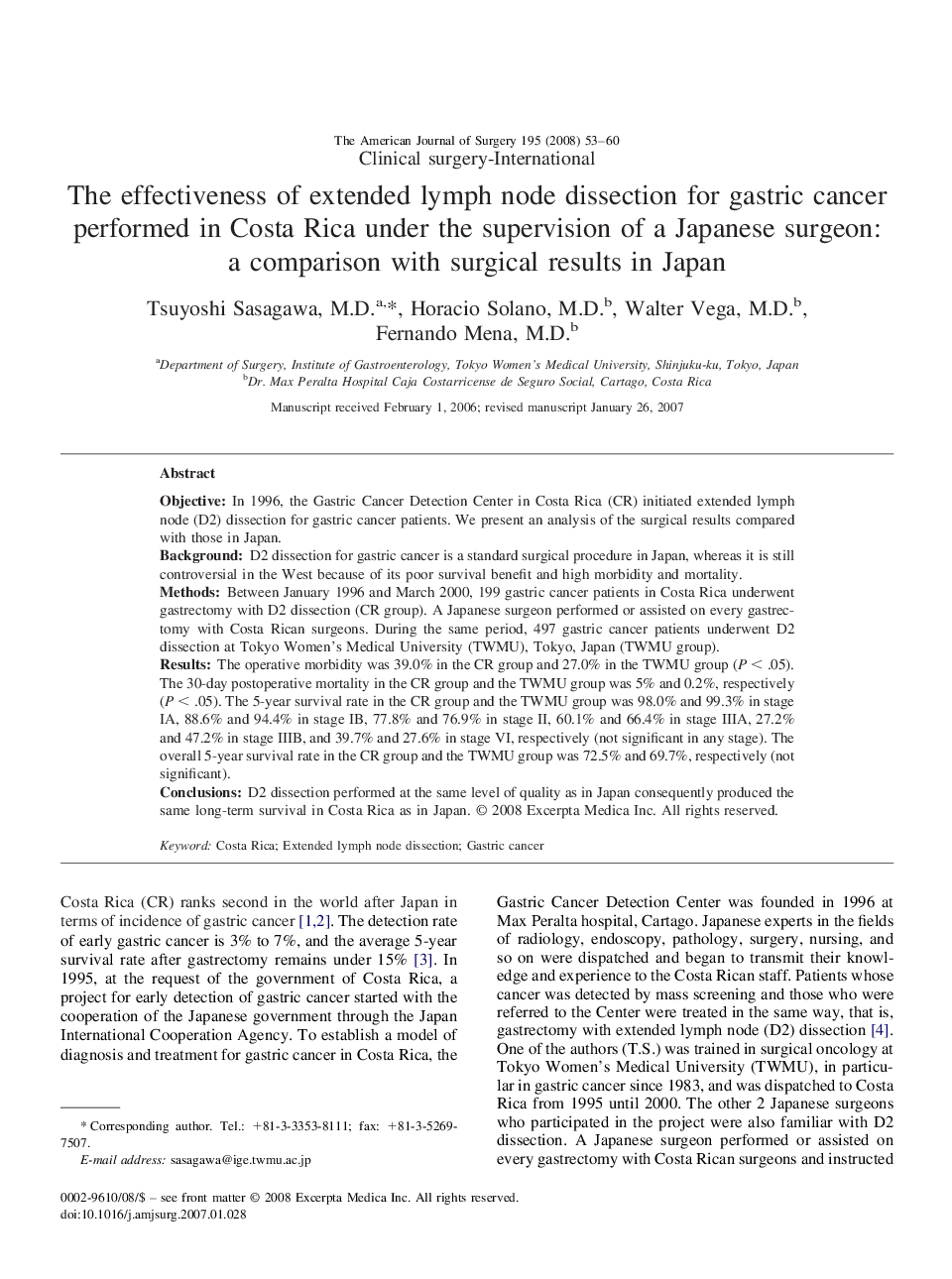| Article ID | Journal | Published Year | Pages | File Type |
|---|---|---|---|---|
| 4281292 | The American Journal of Surgery | 2008 | 8 Pages |
ObjectiveIn 1996, the Gastric Cancer Detection Center in Costa Rica (CR) initiated extended lymph node (D2) dissection for gastric cancer patients. We present an analysis of the surgical results compared with those in Japan.BackgroundD2 dissection for gastric cancer is a standard surgical procedure in Japan, whereas it is still controversial in the West because of its poor survival benefit and high morbidity and mortality.MethodsBetween January 1996 and March 2000, 199 gastric cancer patients in Costa Rica underwent gastrectomy with D2 dissection (CR group). A Japanese surgeon performed or assisted on every gastrectomy with Costa Rican surgeons. During the same period, 497 gastric cancer patients underwent D2 dissection at Tokyo Women’s Medical University (TWMU), Tokyo, Japan (TWMU group).ResultsThe operative morbidity was 39.0% in the CR group and 27.0% in the TWMU group (P < .05). The 30-day postoperative mortality in the CR group and the TWMU group was 5% and 0.2%, respectively (P < .05). The 5-year survival rate in the CR group and the TWMU group was 98.0% and 99.3% in stage IA, 88.6% and 94.4% in stage IB, 77.8% and 76.9% in stage II, 60.1% and 66.4% in stage IIIA, 27.2% and 47.2% in stage IIIB, and 39.7% and 27.6% in stage VI, respectively (not significant in any stage). The overall 5-year survival rate in the CR group and the TWMU group was 72.5% and 69.7%, respectively (not significant).ConclusionsD2 dissection performed at the same level of quality as in Japan consequently produced the same long-term survival in Costa Rica as in Japan.
